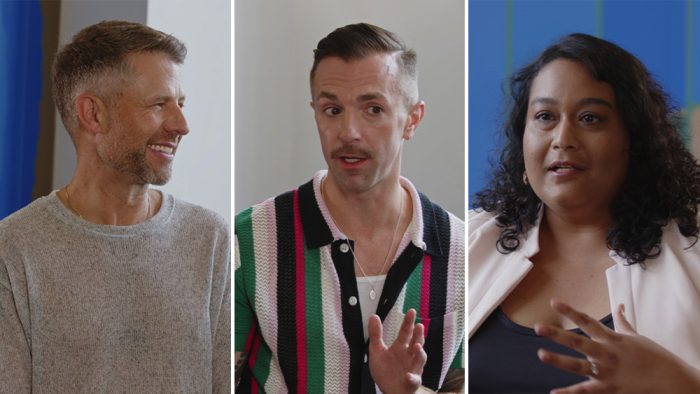Lights, Camera, Inclusion S2E4: Henri Pardo and Éric Idriss-Kanago
The duo discusses the success of Kanaval, the power of authenticity and Afro-communitarianism and the importance of multiplying stories.
In this episode, Gaëlle Essoo sits down with the unstoppable producer/director tandem composed by Éric Idriss-Kanago and Henri Pardo. The duo notably worked together on Afro Canada, a documentary series covering 400 years of African-Canadian history, a creative and community adventure which laid the foundations for their collaboration and confirmed their desire to transform the face of the industry.
After achieving great success at the Toronto International Film Festival (TIFF), with the Amplify Voices Award for best BIPOC feature film and with an honorable mention for best Canadian feature film, Kanaval, director Henri Pardo's first fiction feature film, also recently had its Quebec premiere as part of the Cinémania film festival.
At the origin of this dream come true, there is obviously Henri Pardo’s personal story, his own professional journey, but one meeting was decisive. Between Éric Idriss-Kanago and Henri Pardo, the connection was almost instantaneous: “Right away, we got into the real stuff,” explains the director. “We observed each other and then very quickly, by the end of the evening, we were talking about our projects, exchanging our stories. And then of course, at that moment, we already wanted to change the world,” confirms Éric Idriss-Kanago. The latter, a seasoned producer with significant experience in Europe and Africa, declared, after reading two pages of Kanaval's embryonic script: "This will be my first Canadian film." Promise kept.
The duo is very thankful for the Amplify Voices – BIPOC Best Feature Film Award won by Kanaval at TIFF. “It’s a very important action to put this focus on underrepresented people. Underrepresented doesn't mean there aren't many of us. This is one of the things I wanted to say, is that there are many of us, and we have enormous voices,” explains Henri Pardo. Obviously, it's not all about creating and awarding dedicated prizes – the in-depth work, particularly on the part of institutions, is essential, mentions Éric Idriss-Kanago, who emphasizes that there has been a certain pressure since new measures have been put in place to support racialized creators in the screen industry. “We almost had an obligation to succeed, because otherwise, we would have proven right all the people who said: “But you can see that they are not capable of doing that [...] let it go. We know how to do it. We are used to doing that and so we are going to do it for them.”
The output that’s visible on screen, according to the duo, is also largely the result of what happens behind the camera. Creating the conditions for inclusive film sets, where everyone can feel free to be themselves and make their contribution, is part of a working method that Henri Pardo is particularly fond of and which requires “a heck of a dose of both humility and self-confidence,” comments Éric Idriss-Kanago. A method that has already proven itself during the previous project on which the two worked together, namely Afro Canada, the documentary series released in 2022, tracing back 400 years of the history of Black people in Canada. Afro Canada’s set was like “a true school”, with a crew almost exclusively made up of racialized people, the vast majority of which were Black, and where many talents were finally able to express themselves.
“I have people who will take their origins, their culture, their values and put that directly into the work and it makes everything grow. So, this means that when we finish a project, yes, it is given to the public, but we have cultivated something. We have cultivated a way of doing things that we take from project to project and that enlarges the work,” concludes Henri Pardo.



